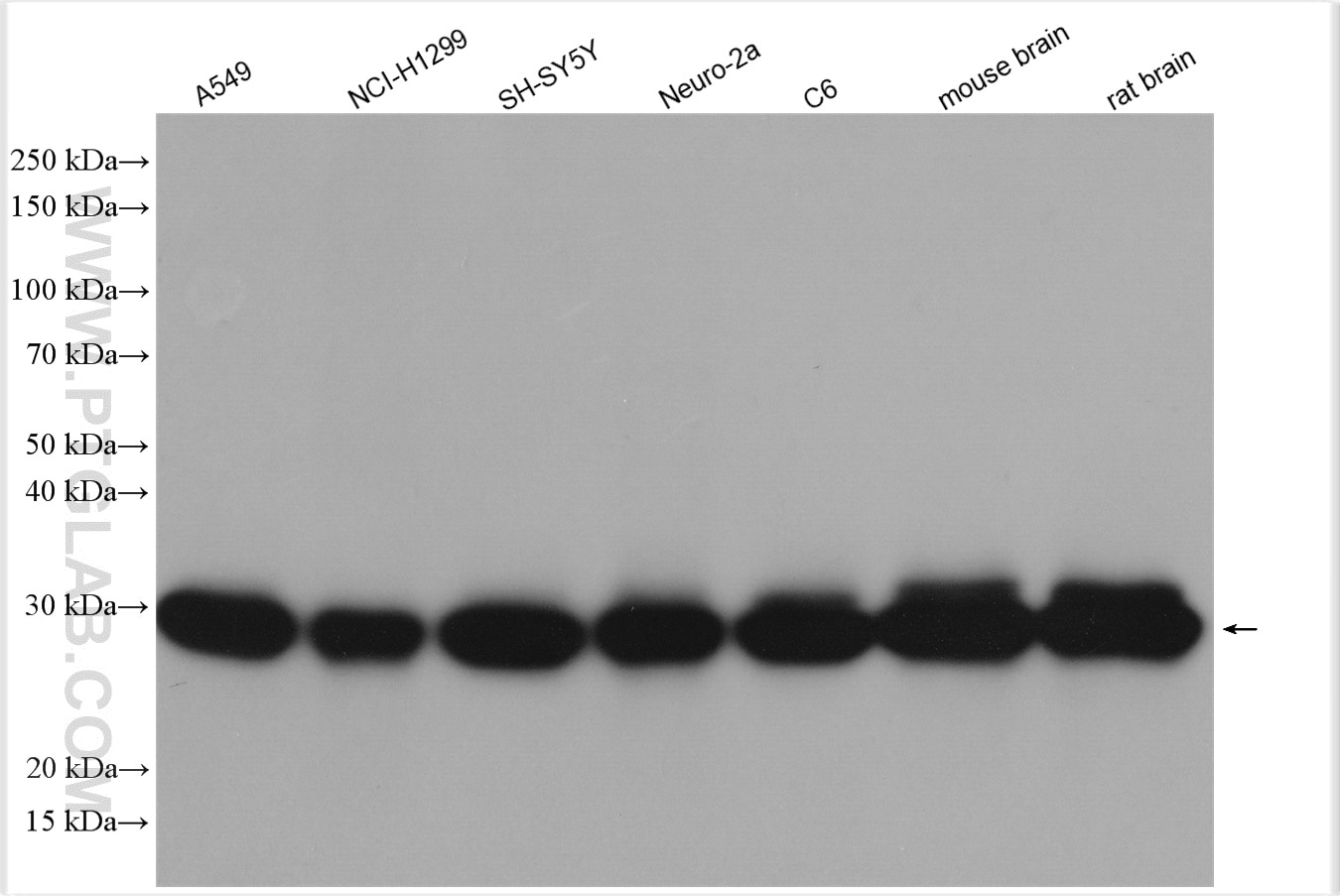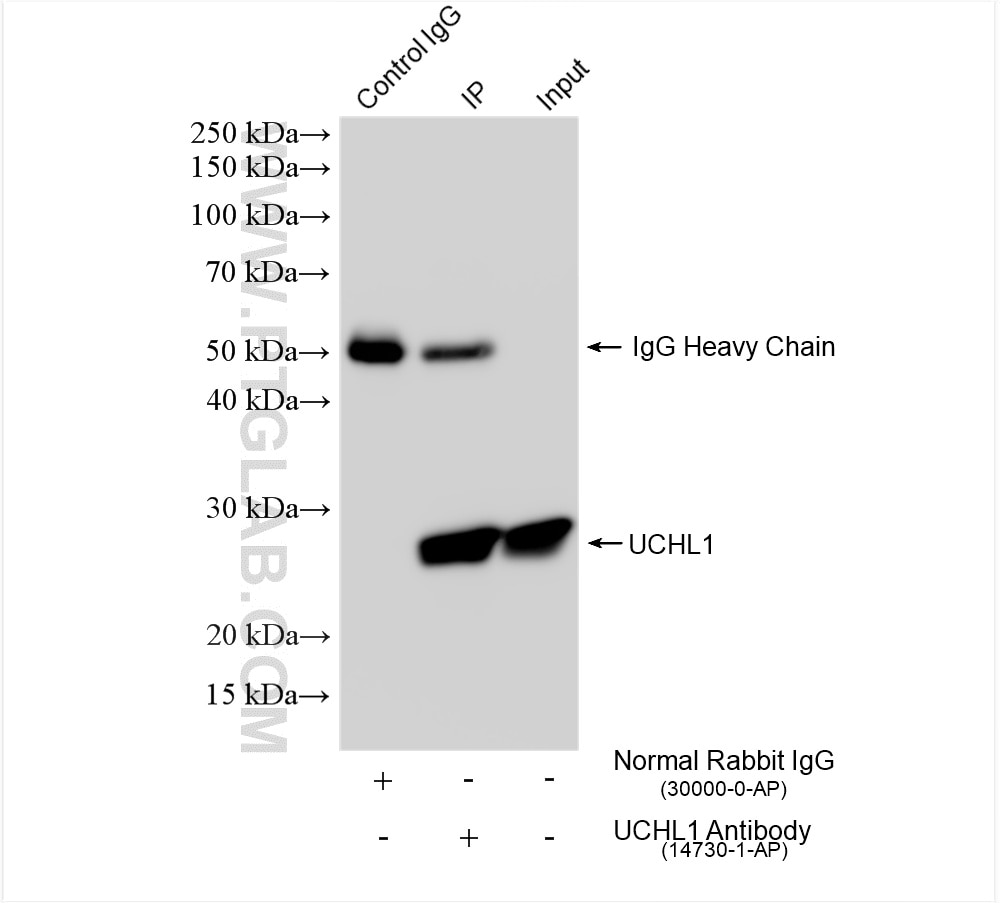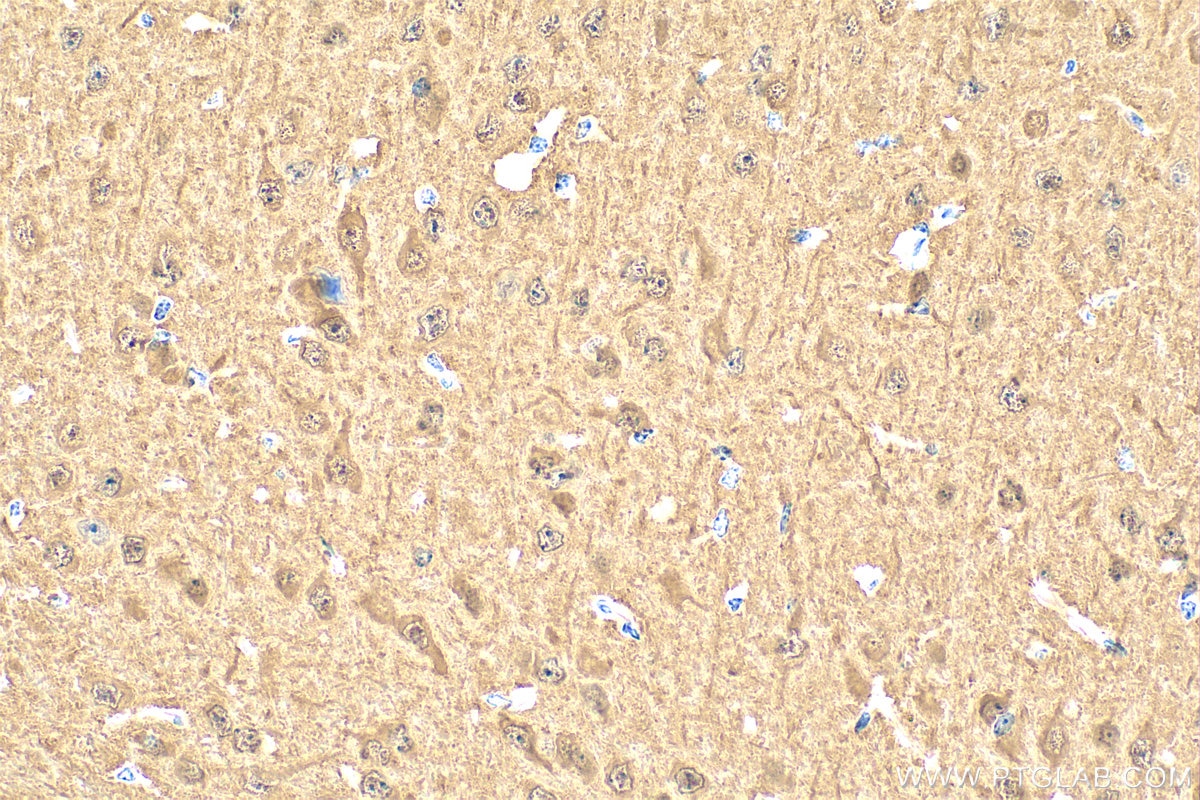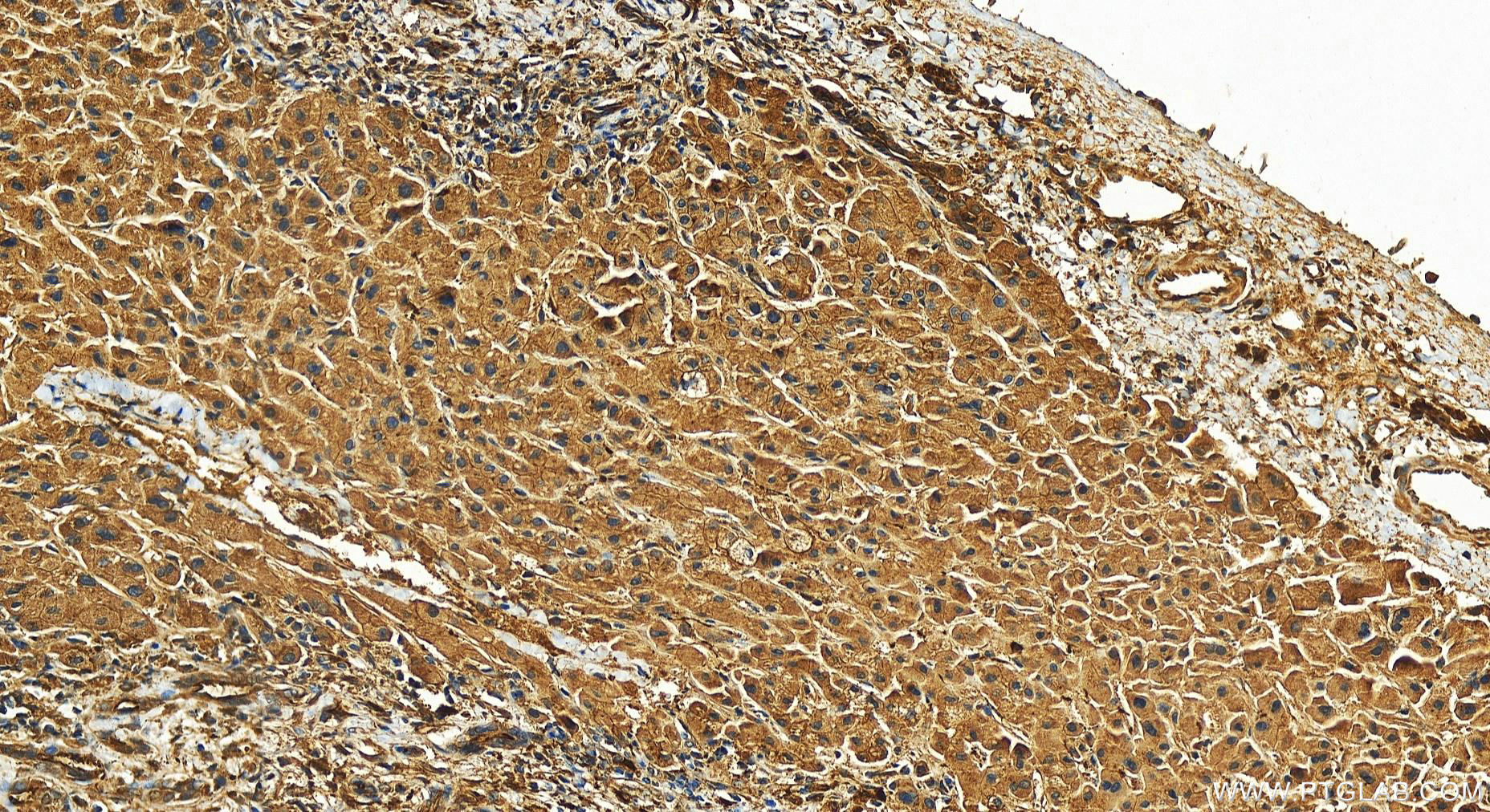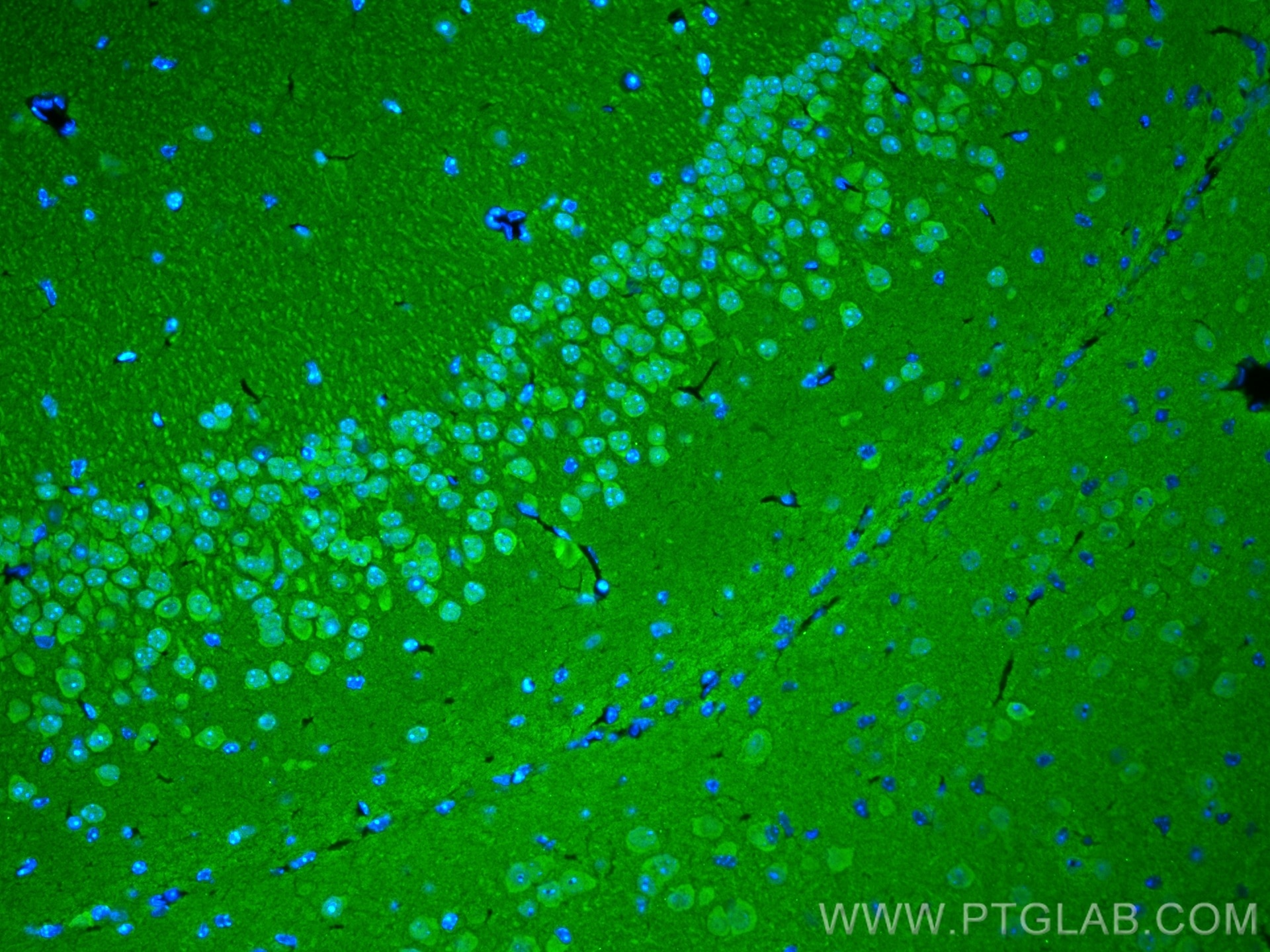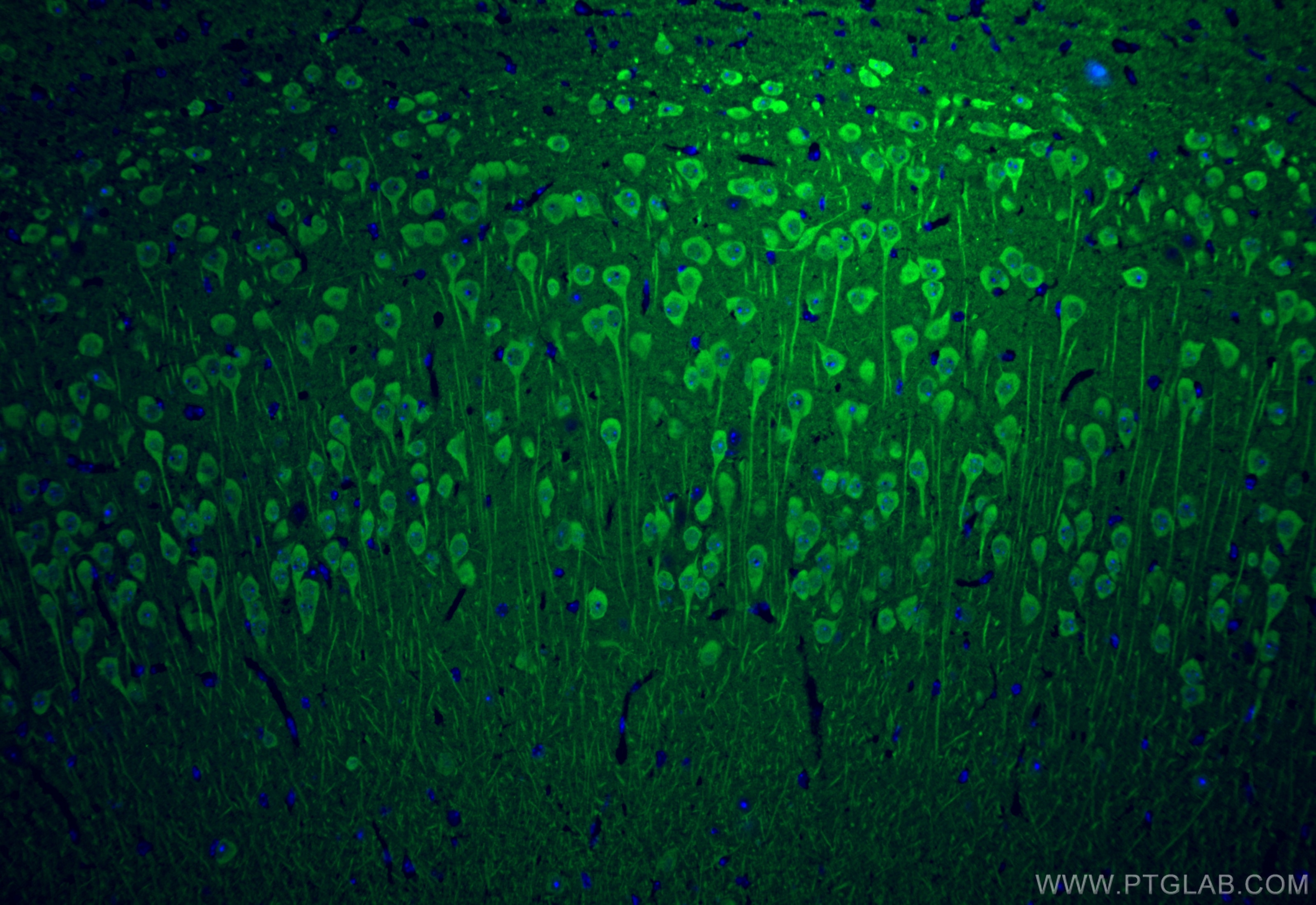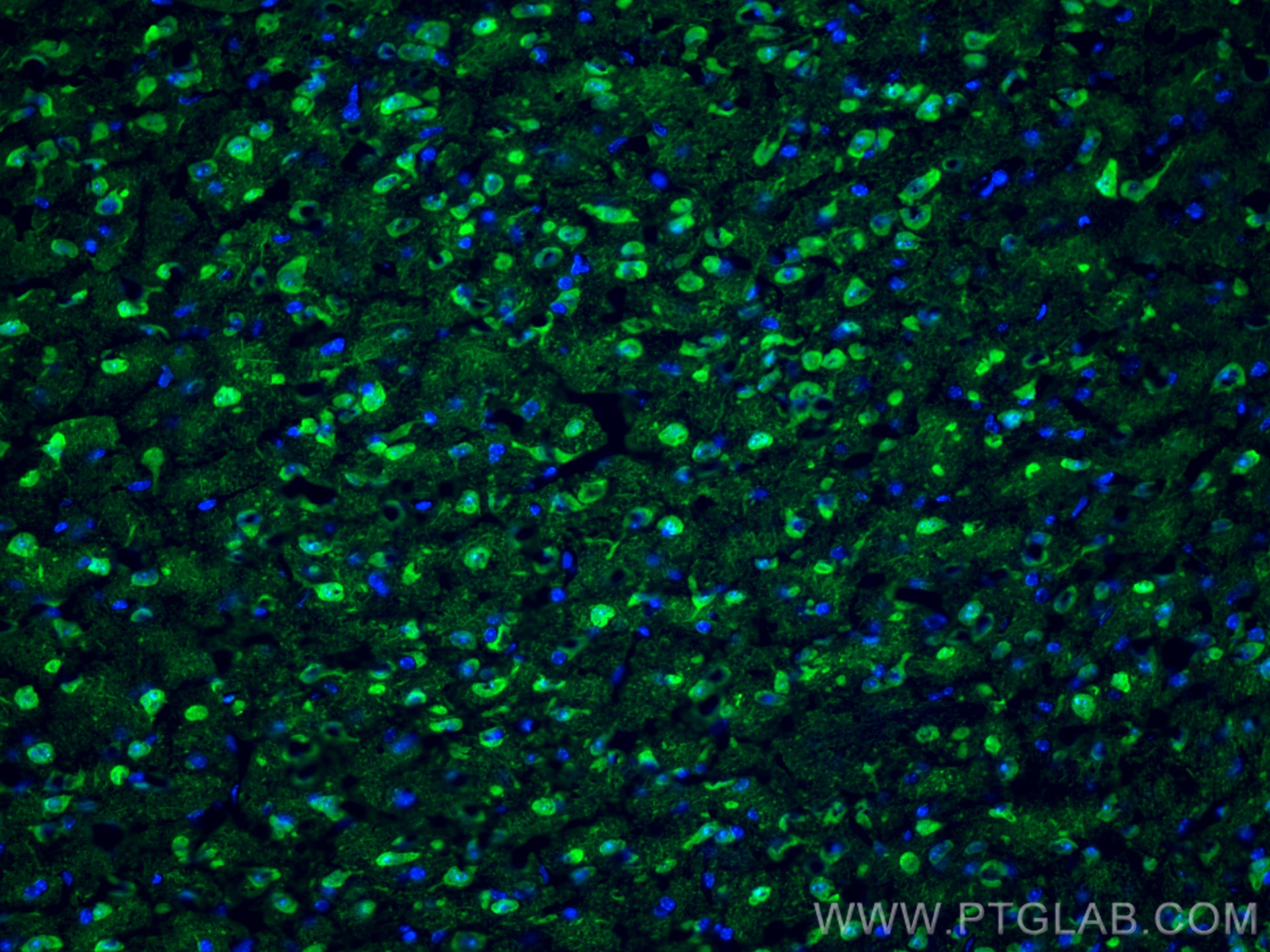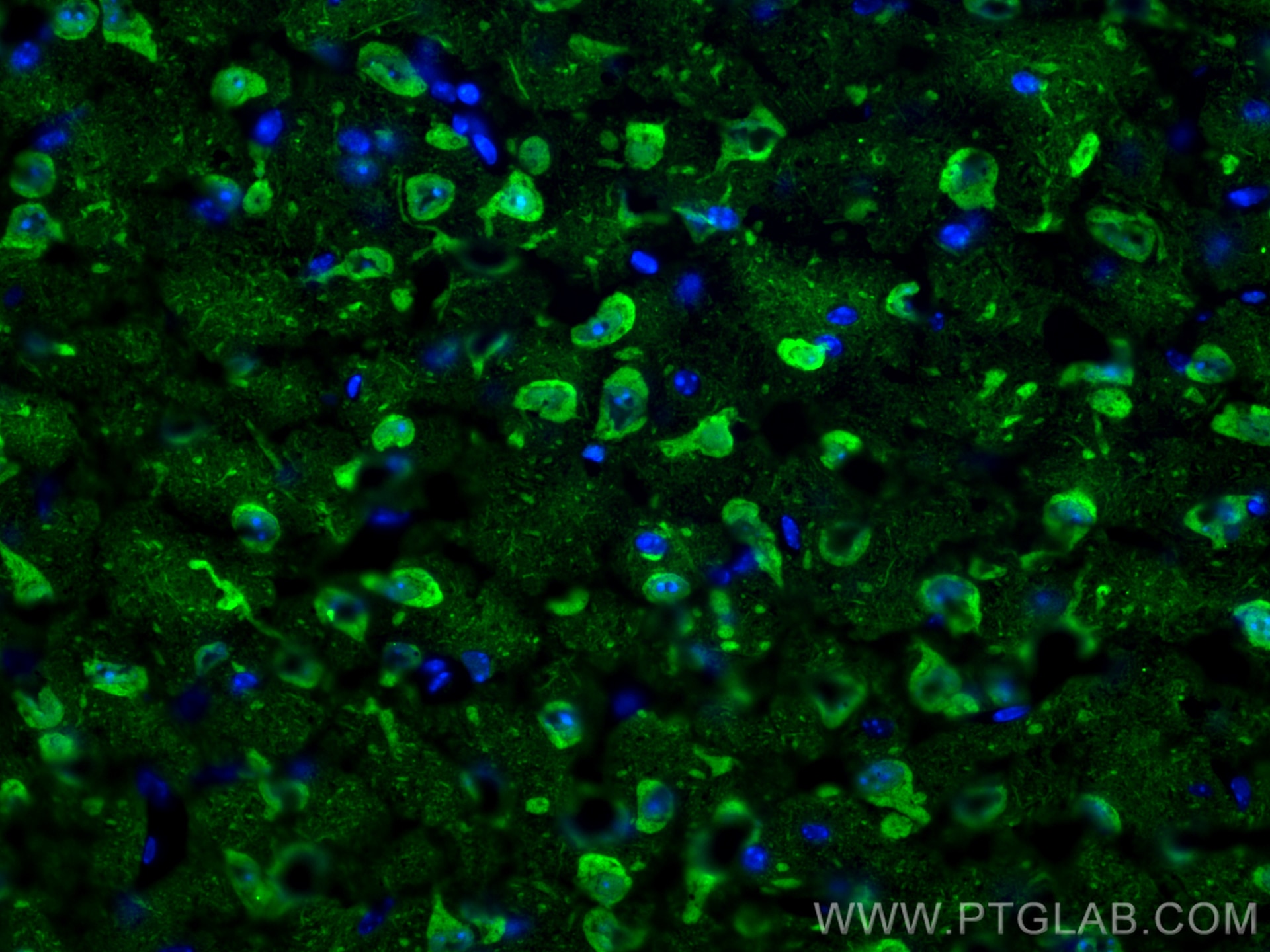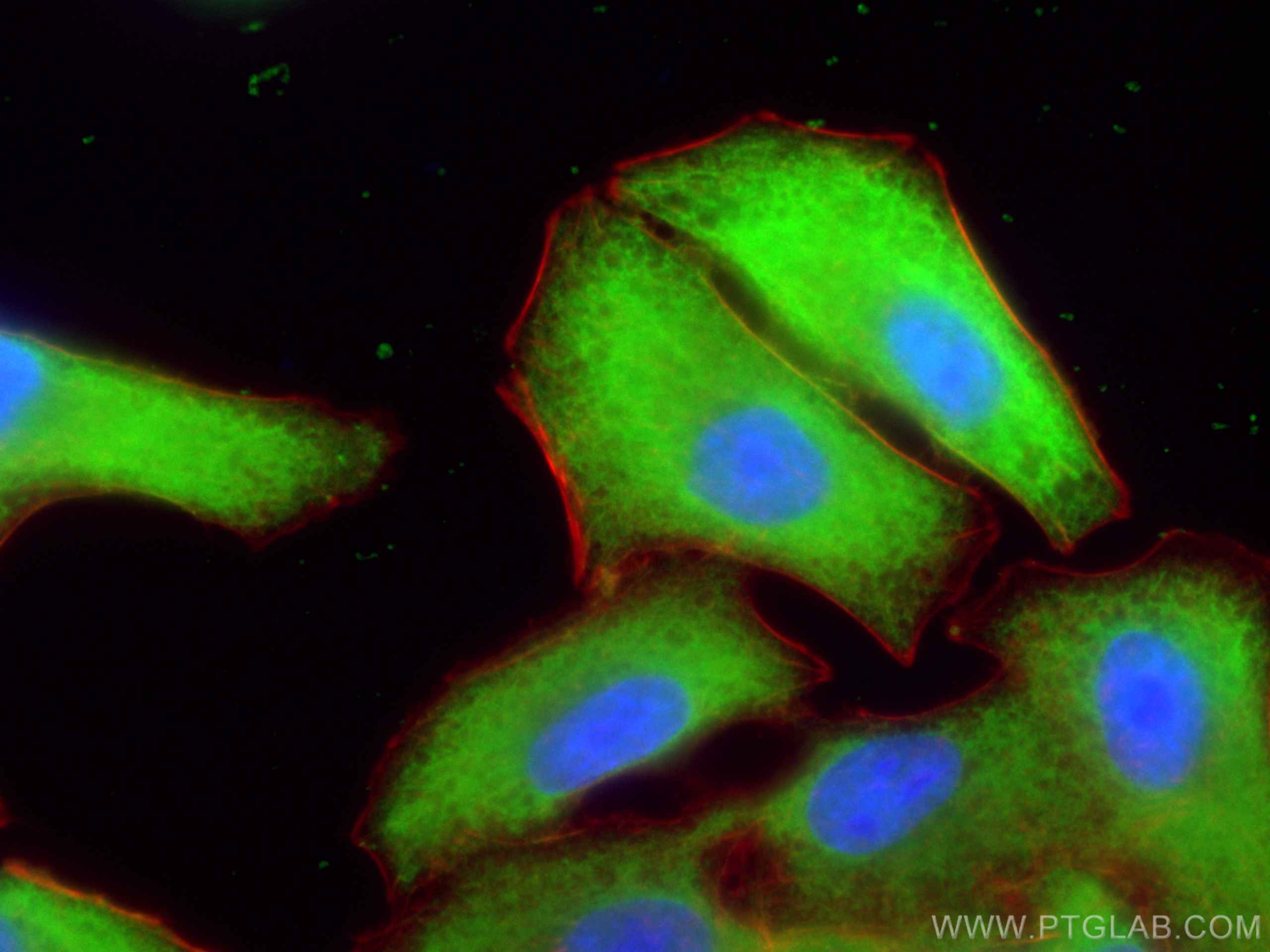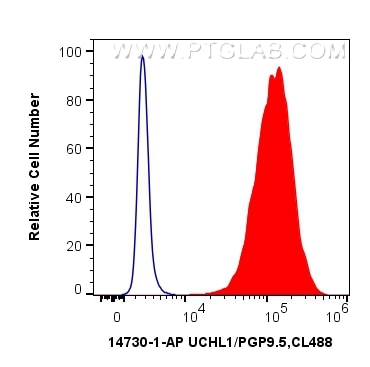Tested Applications
| Positive WB detected in | A549 cells, NCI-H1299 cells, SH-SY5Y cells, Neuro-2a cells, C6 cells, mouse brain tissue, rat brain tissue |
| Positive IP detected in | A549 cells |
| Positive IHC detected in | mouse brain tissue, human intrahepatic cholangiocarcinoma tissue Note: suggested antigen retrieval with TE buffer pH 9.0; (*) Alternatively, antigen retrieval may be performed with citrate buffer pH 6.0 |
| Positive IF-P detected in | mouse brain tissue |
| Positive IF-Fro detected in | mouse brain tissue |
| Positive IF/ICC detected in | A549 cells, mouse brain tissue |
| Positive FC (Intra) detected in | C6 cells |
Recommended dilution
| Application | Dilution |
|---|---|
| Western Blot (WB) | WB : 1:5000-1:50000 |
| Immunoprecipitation (IP) | IP : 0.5-4.0 ug for 1.0-3.0 mg of total protein lysate |
| Immunohistochemistry (IHC) | IHC : 1:50-1:500 |
| Immunofluorescence (IF)-P | IF-P : 1:50-1:500 |
| Immunofluorescence (IF)-FRO | IF-FRO : 1:50-1:500 |
| Immunofluorescence (IF)/ICC | IF/ICC : 1:200-1:800 |
| Flow Cytometry (FC) (INTRA) | FC (INTRA) : 0.40 ug per 10^6 cells in a 100 µl suspension |
| It is recommended that this reagent should be titrated in each testing system to obtain optimal results. | |
| Sample-dependent, Check data in validation data gallery. | |
Published Applications
| KD/KO | See 7 publications below |
| WB | See 27 publications below |
| IHC | See 32 publications below |
| IF | See 80 publications below |
| ELISA | See 2 publications below |
| CoIP | See 5 publications below |
Product Information
14730-1-AP targets UCH-L1/PGP9.5 in WB, IHC, IF/ICC, IF-P, IF-Fro, FC (Intra), IP, CoIP, ELISA applications and shows reactivity with human, mouse, rat samples.
| Tested Reactivity | human, mouse, rat |
| Cited Reactivity | human, mouse, rat, pig, canine, monkey, non-human primate |
| Host / Isotype | Rabbit / IgG |
| Class | Polyclonal |
| Type | Antibody |
| Immunogen |
CatNo: Ag6490 Product name: Recombinant human UCHL1 protein Source: e coli.-derived, PGEX-4T Tag: GST Domain: 1-223 aa of BC000332 Sequence: MQLKPMEINPEMLNKVLSRLGVAGQWRFVDVLGLEEESLGSVPAPACALLLLFPLTAQHENFRKKQIEELKGQEVSPKVYFMKQTIGNSCGTIGLIHAVANNQDKLGFEDGSVLKQFLSETEKMSPEDRAKCFEKNEAIQAAHDAVAQEGQCRVDDKVNFHFILFNNVDGHLYELDGRMPFPVNHGASSEDTLLKDAAKVCREFTEREQGEVRFSAVALCKAA Predict reactive species |
| Full Name | ubiquitin carboxyl-terminal esterase L1 (ubiquitin thiolesterase) |
| Calculated Molecular Weight | 25 kDa |
| Observed Molecular Weight | 27 kDa |
| GenBank Accession Number | BC000332 |
| Gene Symbol | UCHL1 |
| Gene ID (NCBI) | 7345 |
| RRID | AB_2210497 |
| Conjugate | Unconjugated |
| Form | Liquid |
| Purification Method | Antigen affinity purification |
| UNIPROT ID | P09936 |
| Storage Buffer | PBS with 0.02% sodium azide and 50% glycerol, pH 7.3. |
| Storage Conditions | Store at -20°C. Stable for one year after shipment. Aliquoting is unnecessary for -20oC storage. 20ul sizes contain 0.1% BSA. |
Background Information
UCHL1(Ubiquitin carboxyl-terminal hydrolase isozyme L1) is a member of a gene family whose products hydrolyze small C-terminal adducts of ubiquitin to generate the ubiquitin monomer. Expression of UCHL1 is highly specific to neurons and to cells of the diffuse neuroendocrine system and their tumors. It is present in all neurons(PMID: 6343558). This protein is present in brain at concentrations at least 50 times greater than in other organs and is a major protein component of neuronal cytoplasm (PMID:7217993). And UCHL1 is a Parkinson's disease susceptibility gene (PMID:15048890).
Protocols
| Product Specific Protocols | |
|---|---|
| FC protocol for UCH-L1/PGP9.5 antibody 14730-1-AP | Download protocol |
| IF protocol for UCH-L1/PGP9.5 antibody 14730-1-AP | Download protocol |
| IHC protocol for UCH-L1/PGP9.5 antibody 14730-1-AP | Download protocol |
| IP protocol for UCH-L1/PGP9.5 antibody 14730-1-AP | Download protocol |
| WB protocol for UCH-L1/PGP9.5 antibody 14730-1-AP | Download protocol |
| Standard Protocols | |
|---|---|
| Click here to view our Standard Protocols |
Publications
| Species | Application | Title |
|---|---|---|
Cell Stem Cell Injury Induces Endogenous Reprogramming and Dedifferentiation of Neuronal Progenitors to Multipotency. | ||
Reviews
The reviews below have been submitted by verified Proteintech customers who received an incentive for providing their feedback.
FH Xiaolu (Verified Customer) (06-05-2024) | This antibody works very well on WB. I tried dilution and found that 1:25000 is good enough. Do not reduced the dilution, or you will get a very strong signal.
 |
FH Dan (Verified Customer) (10-30-2023) | This antibody works really well and gives a positive signal on HCC1806 cells and MDAMB436 cells and shows negative expression in colorectal cancer cell lines.
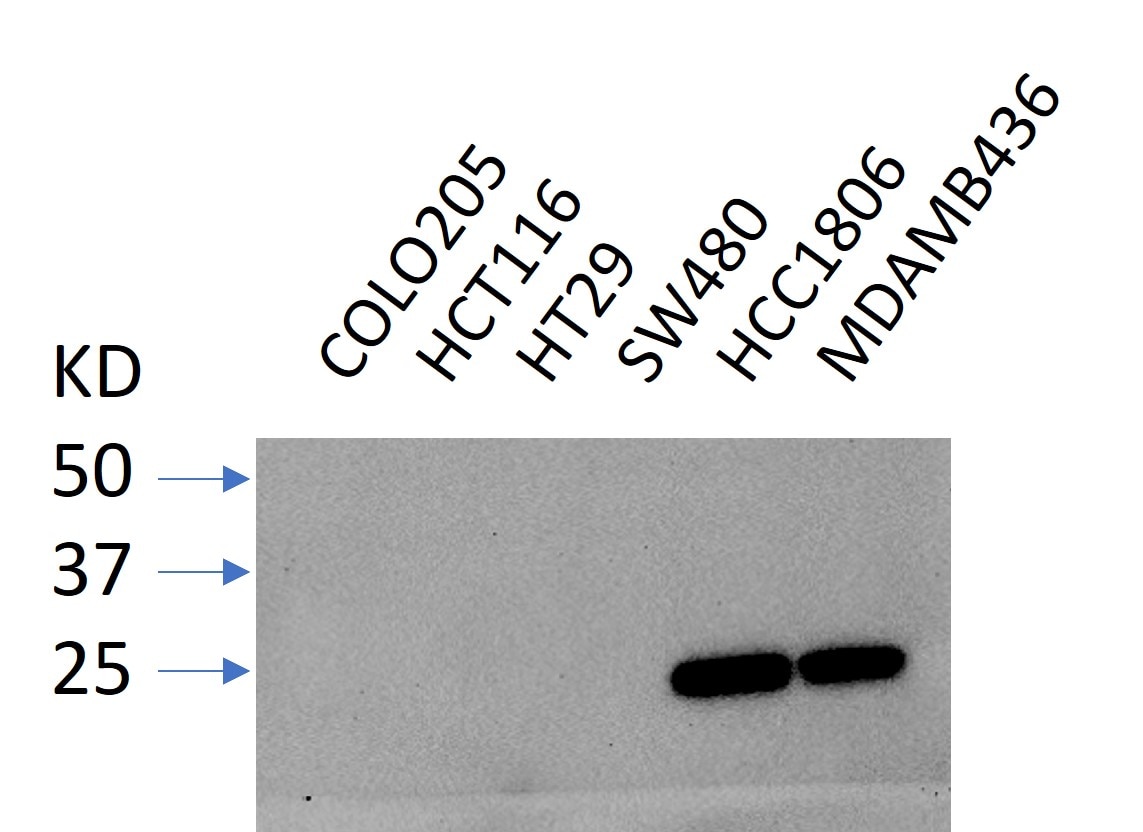 |
FH Kathryn (Verified Customer) (07-10-2020) | We used this antibody for immunofluorescence on frozen mouse ovary tissues sections and it is very specific with minimal background (stained in red in the image).
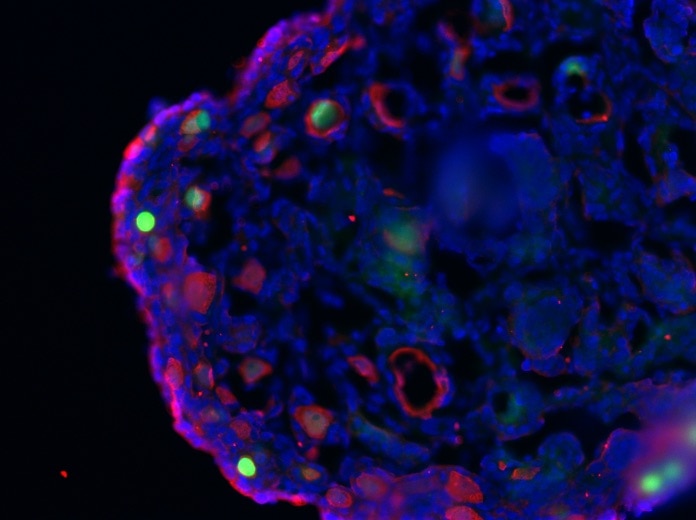 |
FH Ula (Verified Customer) (11-11-2019) | The antibody produced beautiful staining in mouse skin treated with PLP fixative.
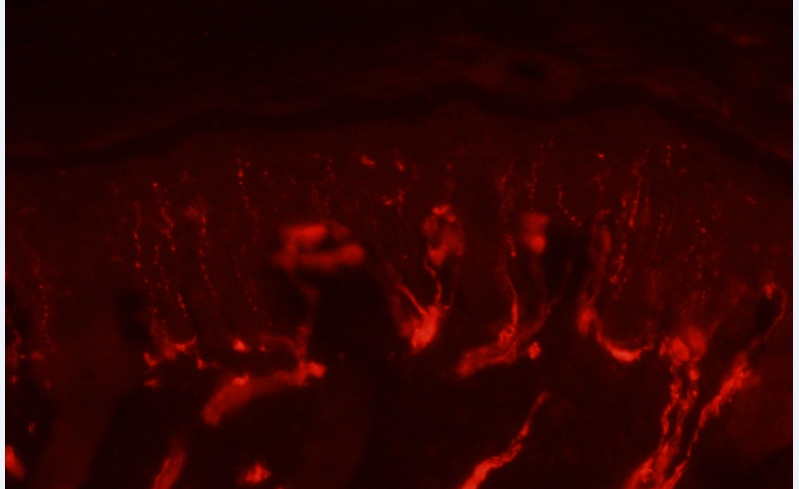 |
FH Rachel (Verified Customer) (07-03-2019) | This product binds with high frequency and sensitivity. I would recommend it to any researchers.
|

